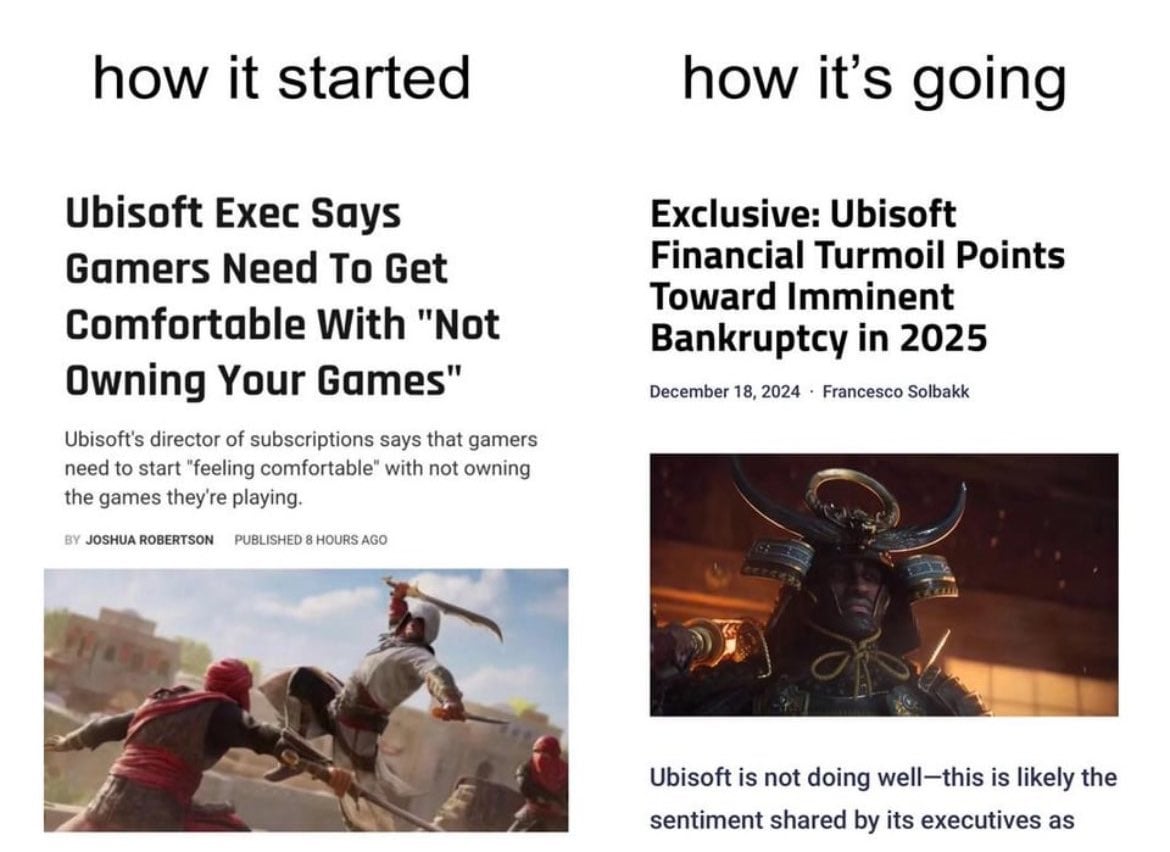this post was submitted on 09 Jan 2025
1261 points (98.8% liked)
Gaming
3387 readers
1080 users here now
!gaming is a community for gaming noobs through gaming aficionados. Unlike !games, we don’t take ourselves quite as serious. Shitposts and memes are welcome.
Our Rules:
1. Keep it civil.
Attack the argument, not the person. No racism/sexism/bigotry. Good faith argumentation only.
2. No sexism, racism, homophobia, transphobia or any other flavor of bigotry.
I should not need to explain this one.
3. No bots, spam or self-promotion.
Only approved bots, which follow the guidelines for bots set by the instance, are allowed.
4. Try not to repost anything posted within the past month.
Beyond that, go for it. Not everyone is on every site all the time.
Logo uses joystick by liftarn
founded 2 years ago
MODERATORS
you are viewing a single comment's thread
view the rest of the comments
view the rest of the comments

G*mers have already grown used to not owning their games. It's called Steam.
You've never owned your games. It's always been a license to play the games. It's just that now they have the ability to enforce it.
I don't think most people's sense of "ownership" of a copy of a game has anything to do with whether or not they've legally bought a license.
For most of my collection, I own a physical thing, that represents the ability to play that game, using hardware I bought, whether I bought those things today, last year, or even a decade ago. Some of my games are digital, but I still have possession of a copy I bought, and can play it whenever I want. I paid money for the right to play a game when I want, and that's a notion of ownership.
If someone can take it away from me, that isn't aligned with my notion of ownership, and also isn't worth spending money on imo. I own some GameCube games, and yes, technically that means I have a license, but they still work physically and legally. There's nothing to enforce against me.
The thing that changed is the ability to revoke that license. And that amounts to a different concept than ownership. One not worth paying for.